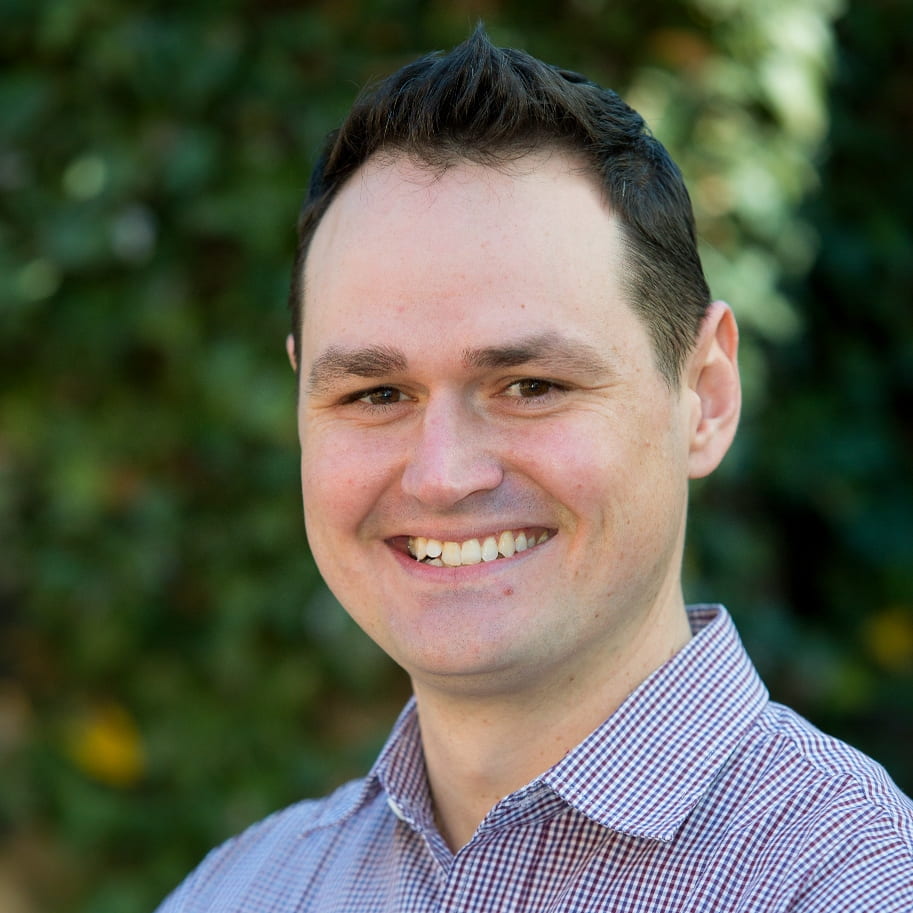Dr Jonathan Moss was recently recognised, with Associate Professor Jennifer Charteris, by the Australian Awards for University Teaching (AAUT), earning a Citation for Outstanding Contributions to Student Learning.
Dr Moss is a lecturer in Quantitative Economics with the UNE Business School. He is interested in the application of bioeconomic modelling to a variety of sustainability issues in the agricultural and natural resource sectors.
He worked as a horticulturist before moving to a consulting firm where he investigated the feasibility of Indigenous development programs in northern and central Queensland.
At UNE, he teaches in the areas of business decision making, farm and resource management, microeconomics and bioeconomics.
Pulse spoke with Dr Moss about his unexpected career as a lecturer and its rewards.
How did you arrive at UNE and your current position?
I had just completed a four-year stint in Asia and was about to become one of the first of two foreign-born academics to be offered a tenure-track position with Thammasat University in Thailand. At the same time, I became aware of a position in the Business School at UNE, which I was fortunate enough to be offered. It was a crossroads moment and a tough decision but the desire to raise my young family in Australia won over the chaos and excitement of living in Bangkok (and yes, we do miss the food!).
Did you plan to become a teacher, or was it where life took you?
Honestly, I never planned to become a lecturer. My passion was for research but inevitably, as most research students discover, it is not long before you find yourself in front of a class. I successfully resisted for a while but thanks to encouragement from Professor Oscar Cacho I took the leap and found it far more rewarding than I had ever imagined.
Have you been influenced by great teachers?
Yes many, but notably Associate Professor John Pearson from University of the Sunshine Coast who was my first tertiary lecturer and has the most amazing ability to engage and inspire anyone who hears him speak on nearly any topic. His mentoring and encouragement throughout the years are also largely the reason why I became an academic.
Both my parents, Trevor and Cheryl, and my wife Dr Supawadee Moss, are also amazing educators and have dedicated their lives to learning and education. Many of the teaching techniques I have adopted are due to the influence of them. It’s also very handy to have family on hand to discuss the latest in neuroscience and the implication of different teaching techniques on a Sunday afternoon.
What do you regard as the elements of good teaching?
- A passion for the subject.
- Constant adaptability. The way our students learn is evolving at an increased pace. Techniques and strategies I successfully used just two years ago are no longer as efficient and need constant tweaking.
- Recognition of different learning styles. We have a diverse set of students at UNE and recognition of this is vital to ensure all receive teaching tailored to their personalised needs.
- A supportive team of colleagues. We are very lucky in the UNE Business School to have a fantastic wealth of colleagues happy to share ideas. Too many to mention but special thanks to Professor Rene Villano and Brent Gregory.
- Having the technology and technical skills available to ensure delivery of our materials. Thanks to Llara Smith, Melissa Mitchel, Carmen Schultz, Steve Grono and Associate Professor Mitch Parkes for all their help over the years.
Do you employ any uncommon strategies in your teaching?
I’d like to think that my strategies are not that uncommon. The main strategies I employ are to strongly demonstrate to students the relevance of our quantitative methods to the real world, to encourage students to provide feedback throughout the trimester and to ensure I constantly adapt my teaching techniques.
What have been the rewards of teaching?
The most rewarding moments for me have been when students tell me something along the lines of “I’ve always hated maths but I really liked your subject and can see how I could apply this in the real-world”. I also find it very rewarding to receive emails or calls from students years after they have studied my units telling me that they had just adopted an optimisation approach technique in their current employment, that I had taught, and this had saved their company x-amount of dollars.
I also find it very rewarding on those occasions when a student asks me a question I do not know the answer to or asks from an angle I have never thought of before. This teaches me something new and reminds me that we are all still students in life.

